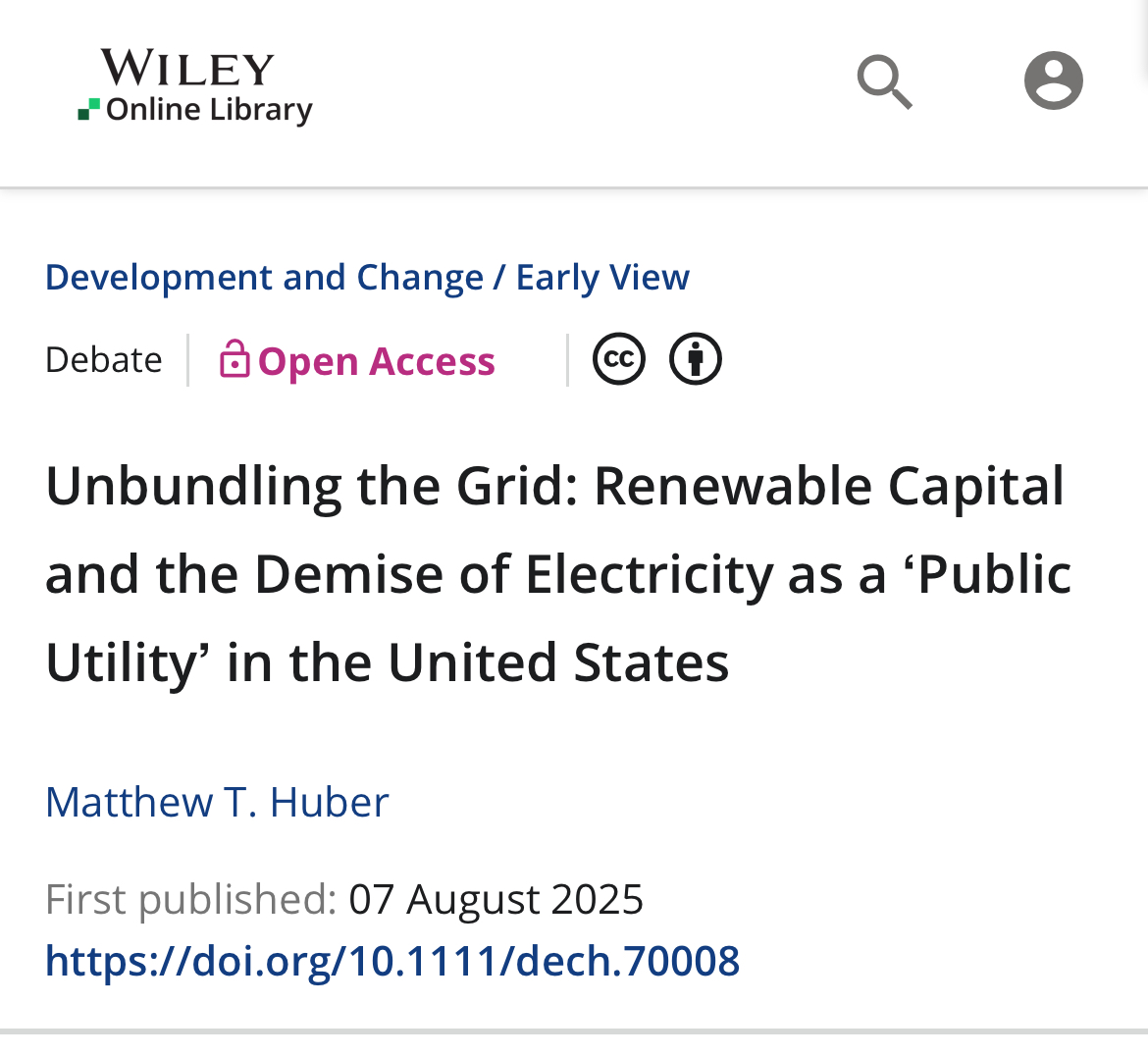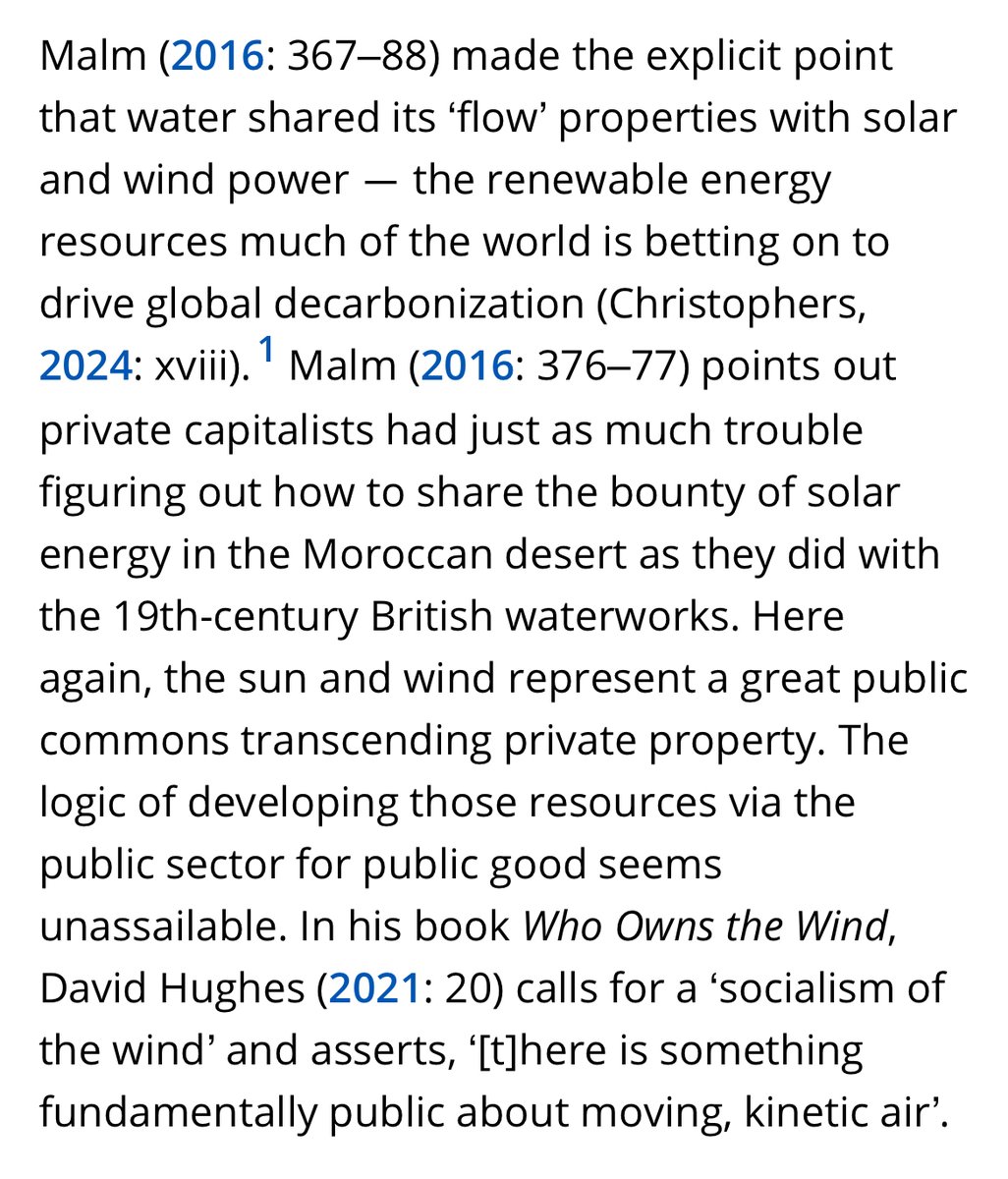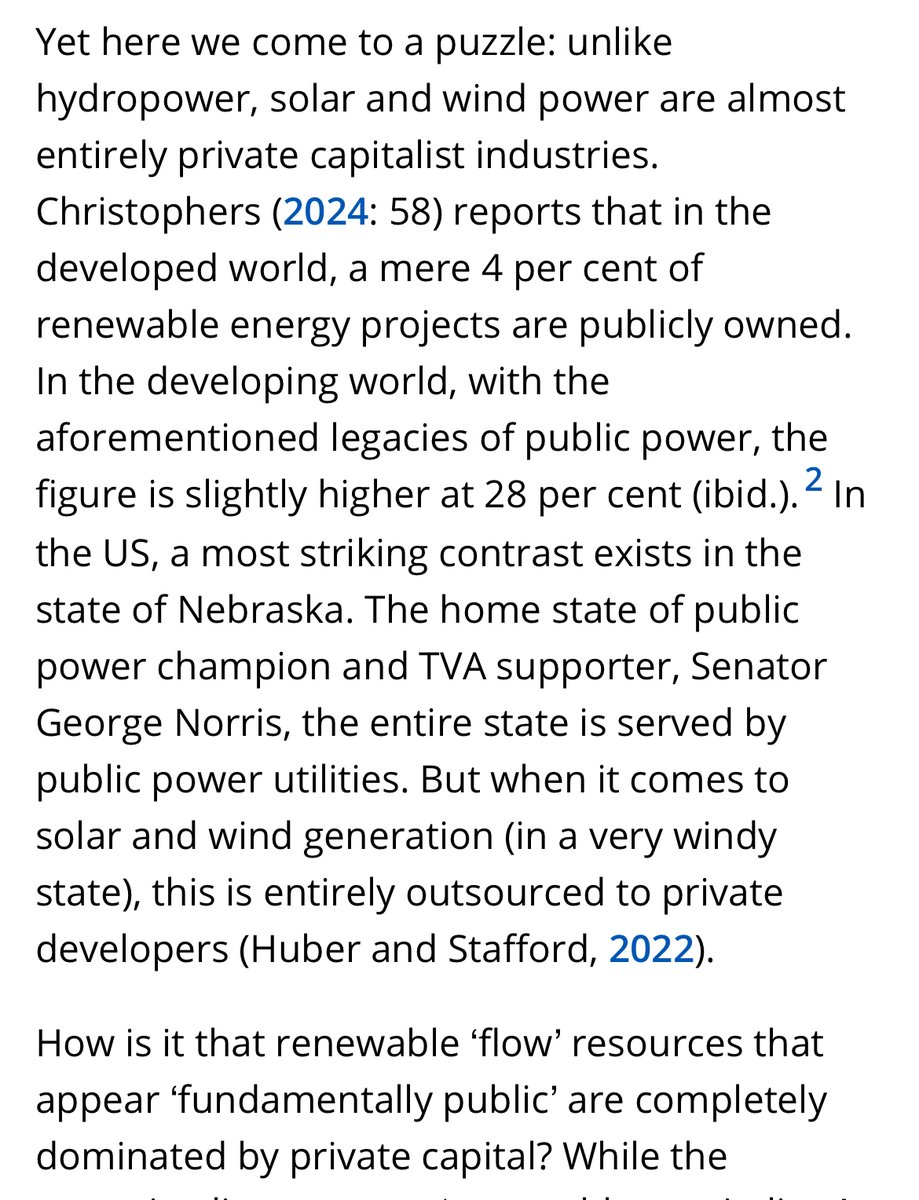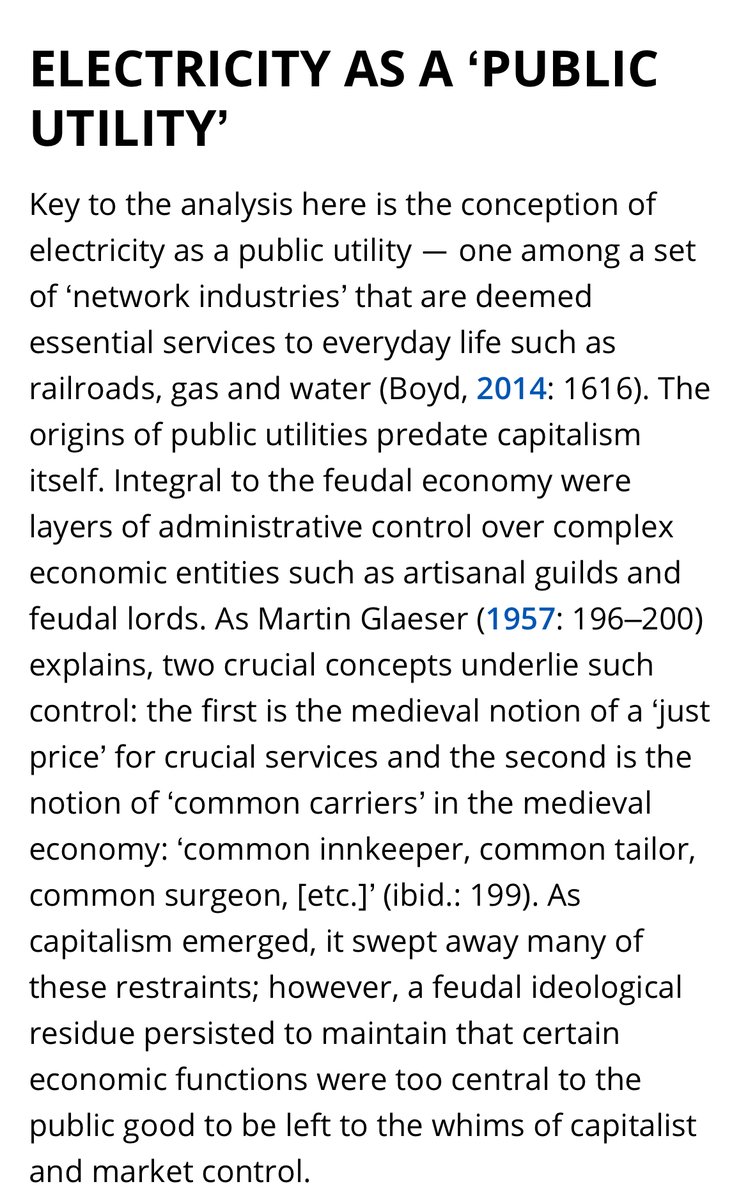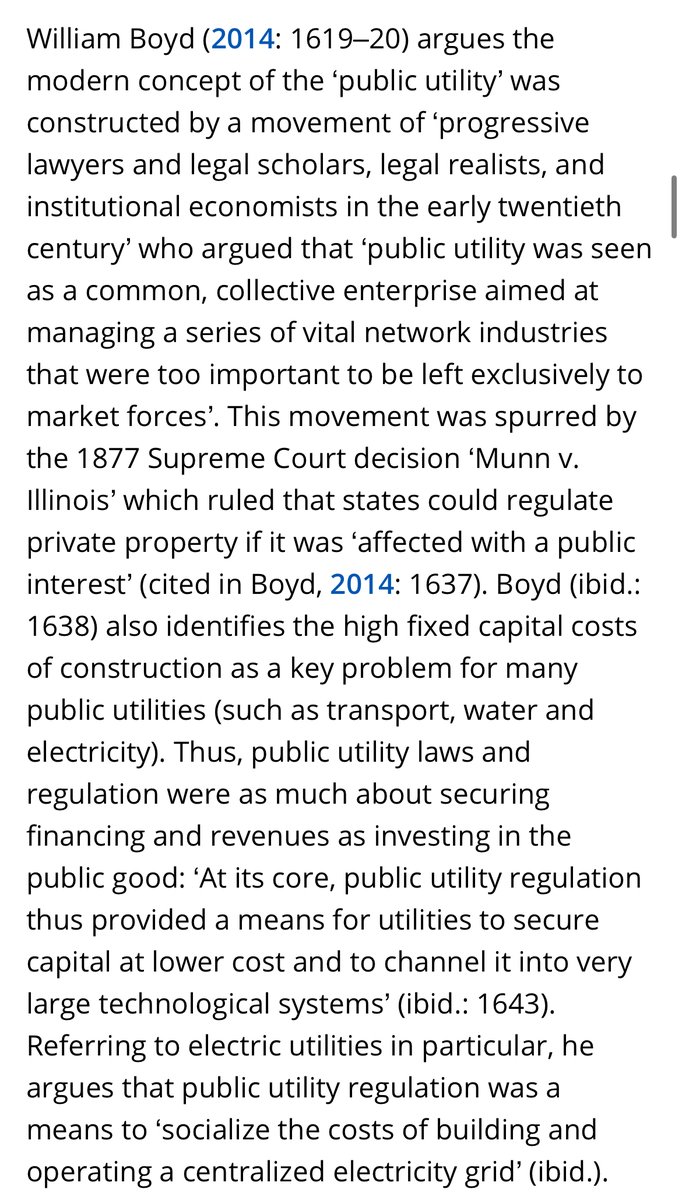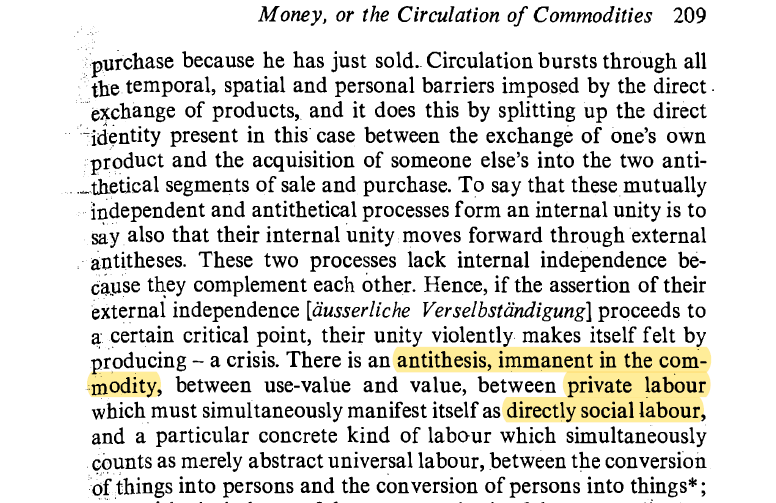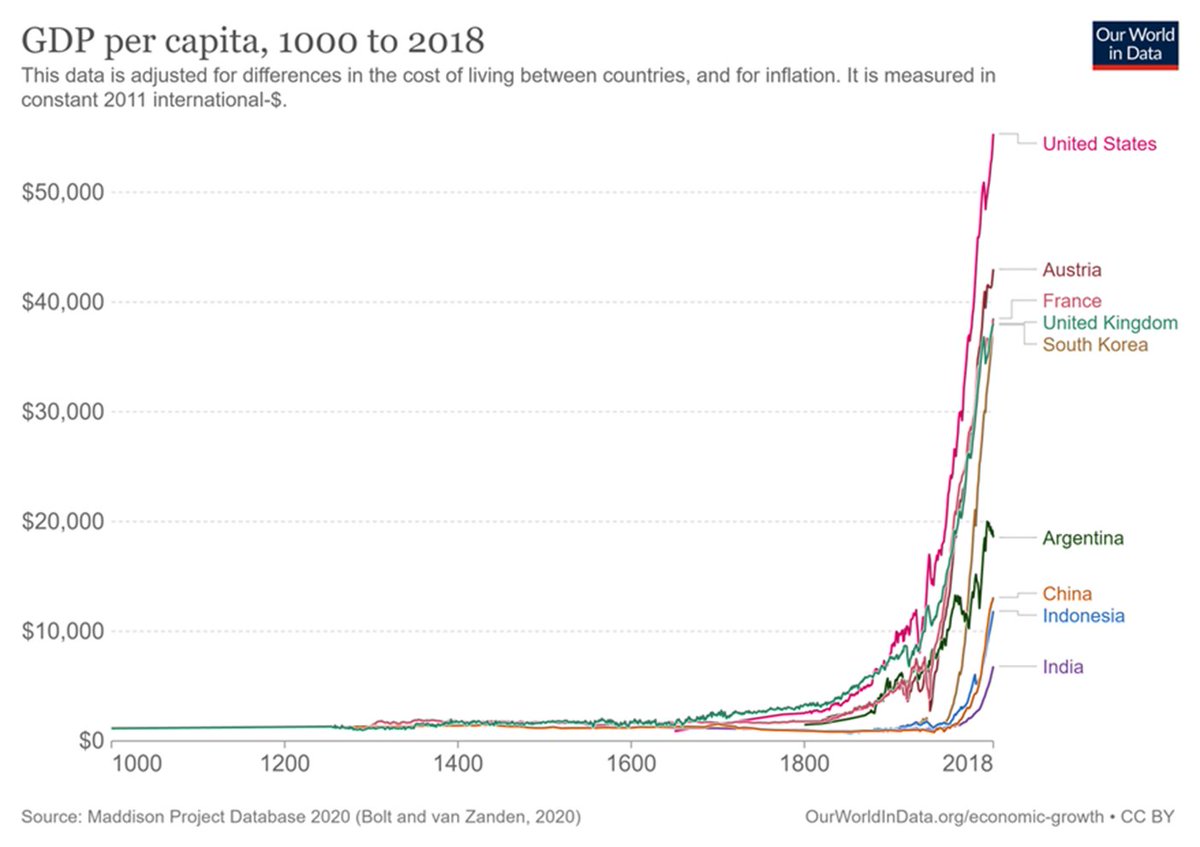I'm honestly tired of this debate, but one of the major Marxist journals has now fully embraced degrowth. I read JB Foster's introduction and wanted to tease out points of agreement and disagreement. 🧵1/x 

First, we all can agree we want to shift to an economy that prioritizes ecological sustainability & provisioning human needs (and one that produces for 'use value' over profit/exchange value - & rejects how GDP narrowly fixates on the latter). 2/x
monthlyreview.org/2023/07/01/pla…
monthlyreview.org/2023/07/01/pla…
Second, we can agree that solving the ecological crisis requires a shift away from the anarchy of the market under capitalism and toward *planning* - lots of interesting history here on socialist planning. 3/x 
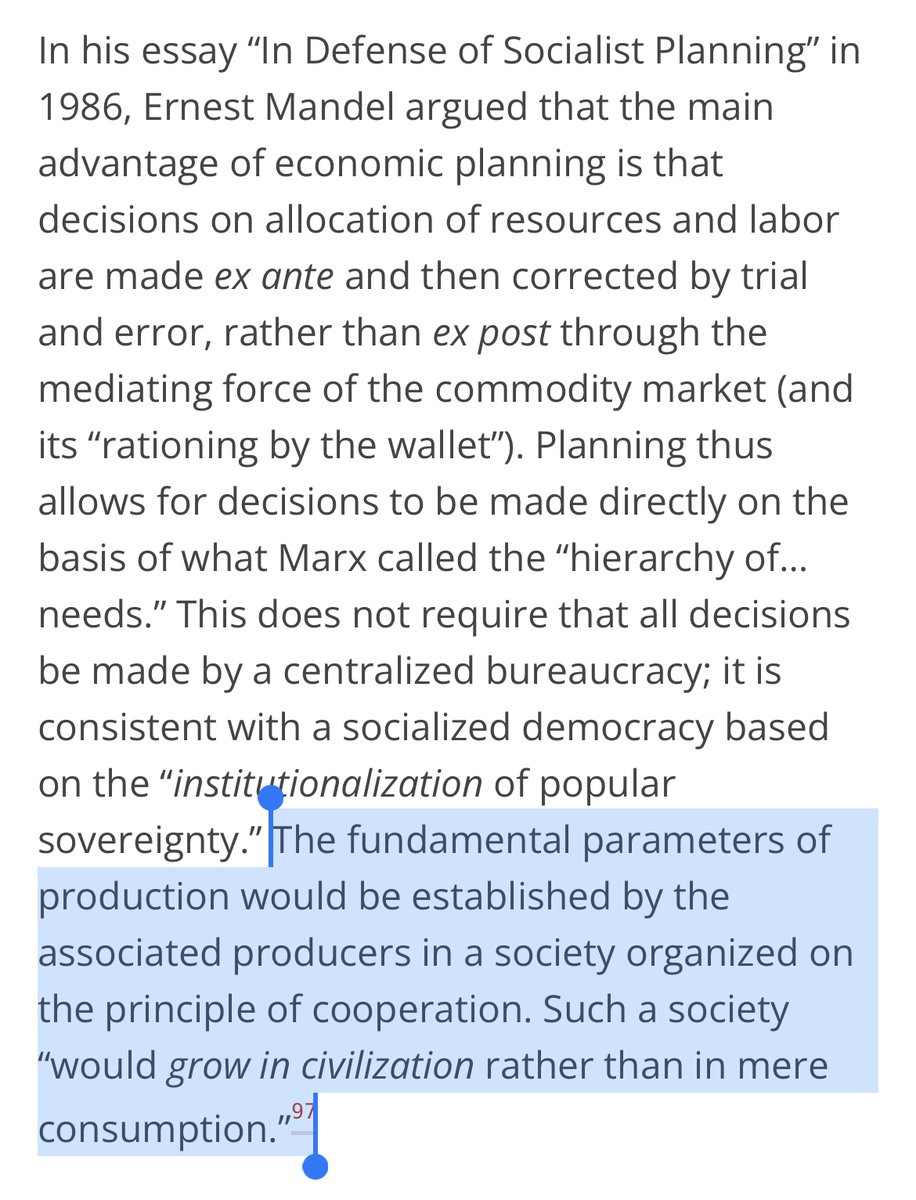
I think the crux of the disagreement is here. JBF seems to assume the productive forces are already 'fully' developed - and all we must now do is reorient and degrow production...whereas I would argue capital severely limits the development of PF to only what is profitable. 4/x 

I do agree with Engels cited here. The goal is not *necessarily* to increase production but to create the maximum conditions for human freedom. But, I think the reverse is also true: the goal is not necessarily to *decrease* aggregate production (as degrowth calls for). 5/x 
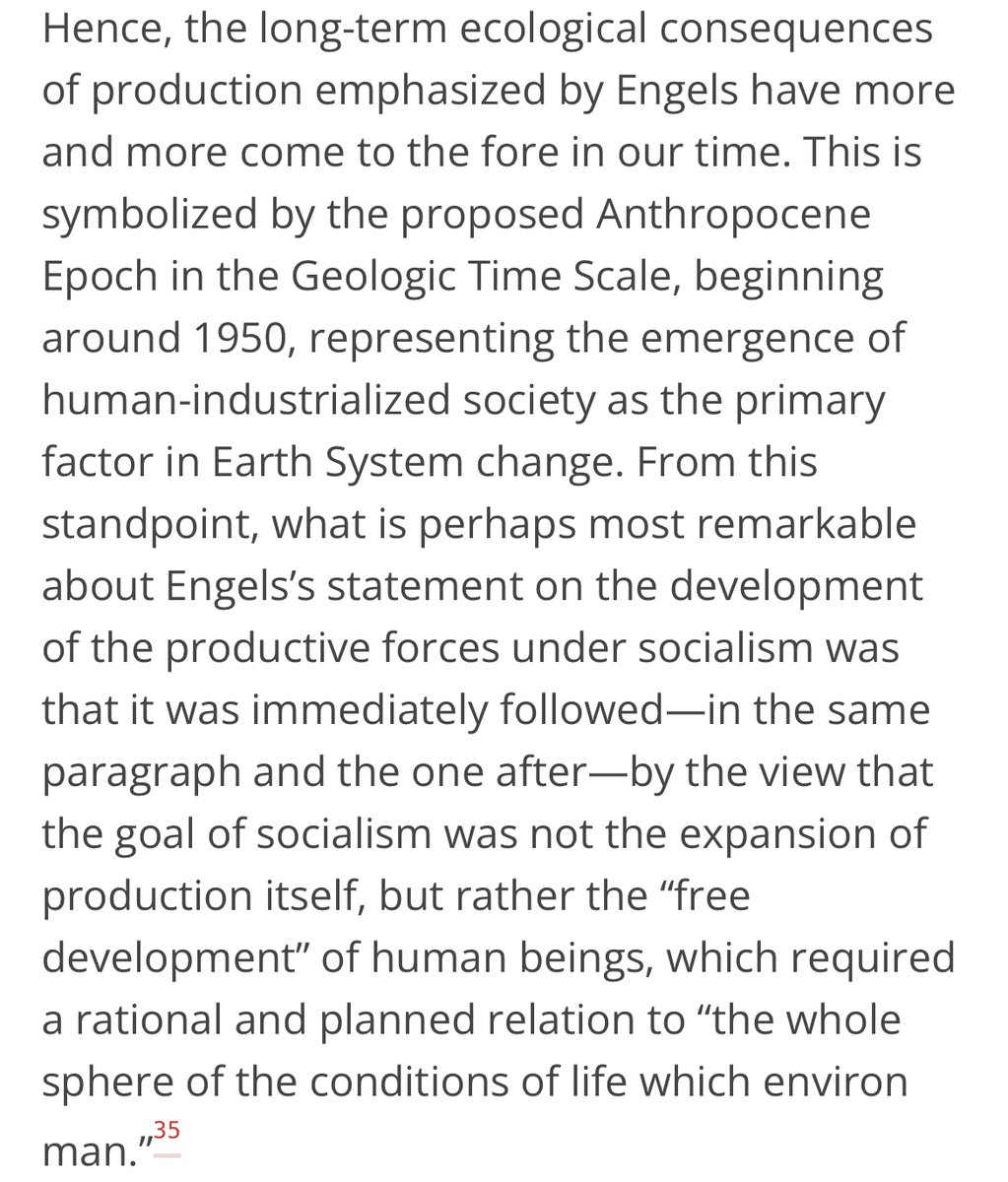
What (based) Engels calls for here is taking full social control (planning) over the social relation to nature (as opposed to capitalism which cedes it to anarchic markets). This requires flexibility to what must be grown/degrown (not rigid adherence to aggregate reductions) 6/x 
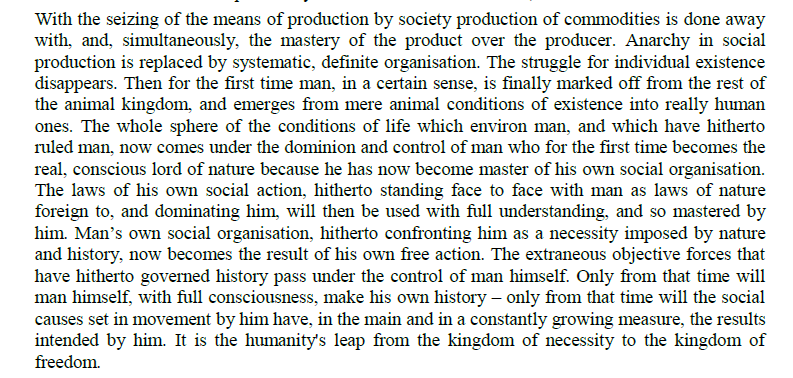
I also think it's straightforward that solving climate (or transforming an economy 80% powered by fossil fuel) v. much requires developing the productive forces (much of which capital won't invest in!). Here's a passage I wrote h/t @fredstaffordcs, on what it entails. 7/x 

Not to mention imagine what it would take to do what I presume Foster (and Engels) advocate: give 8 billion + humans adequate water, electricity, food and other basic needs. Can we do this without growth in the production or the pf? Doubtful. 8/x
https://twitter.com/Matthuber78/status/1597959853724794885?s=20
Also how sad would it be to win socialism only to prohibit further development of the PFs?!? Fusion power? Curing cancer? We still have so much to accomplish (and again it is capitalism that holds us back). Socialism is not stasis! 8/x
Now, ofc, degrowthers will say the reason we must do aggregate reduction/degrowth is the science around 'planetary boundaries'. Here's JBF claiming this is 100% certain citing a nearly 20 year old Herman Daly article 'economics in a full world'. Full world?🤔9/x 

Side note: JBF cites Herman Daly quite a lot. Odd b/c Daly advocates population and immigration control on ecological grounds (see this essay he wrote near the end of his life citing his earlier work claiming a Marxian-Malthusian view?!) 9b/x greattransition.org/gti-forum/popu…
But a soon as the science around 'planetary boundaries' was proposed, it was debated/questioned by other scientists. Even if they are fixed/settled science, as I've already shown, solving one (GHG/atmosphere) requires *expanding* production. 10/x nature.com/articles/46144…
Even if we accept the science on 'boundaries' I think it calls for more contextual qualitative transformations of specific sectors of production rather than some abstract/generalized commitment to quantitative reduction 11/x
Ultimately, reading JBF's essay helped me understand something crucial: while degrowthers rightly push back on the label of 'austerity' b/c they promote decommodified social needs, degrowth is 'austerity' in the OG meaning of the term: restrictions on societal 'budgets'. 12/x
See the accounting language: 'zero net capital formation', 'Earth-System Budget', & growth only possible w/ 'reductions elsewhere'. The imposition of neoliberal ecological economic budget austerity! (Clintonites, whose greatest aspiration was a balanced budget, would love) 13/x






In sum: I've often advanced a 'strategic' critique of degrowth (in system defined by deprivation who will support a program centering 'reduction'?), but another critique is its' de facto constraints on future society whereas socialism should aim to *unleash* our potential. 14/x
I'm very much open to the possibility that if we seized the means of production, we could collectively determine (informed by science) it is necessary to 'degrow' in some way, but why would we make this a prerequisite of our program & foreclose that democratic determination? 15/x
OK, now stray frustrations w/ the essay. See link for my critique of 'eco-footprints' as an abstract indicator of (individualized) impacts. The crisis is not about scaling down some 'footprints'/raising others. It's about transforming infrastructure. 16/x
https://t.co/CqRczbGt43catalyst-journal.com/2019/07/ecolog…


https://t.co/CqRczbGt43catalyst-journal.com/2019/07/ecolog…


I'm sure we can learn from these regimes, but can we really find 'hope' in coal-fired 'ecological civ.' in China, oil financed socialism in Venezuela, & imposed autarky in Cuba? Certainly we can agree you would be hard pressed to find a less degrowth state than China? 17/x 

I think 'abolition of town vs. country' made a lot of sense in the context of 19th C. ecological crisis-ridden cities, but in the 21st C.*more* urbanization (dense living) seems like the answer to many ecological problems (as Mike Davis argued): 18/x https://t.co/nQERKPt8Qinewleftreview.org/issues/ii61/ar…



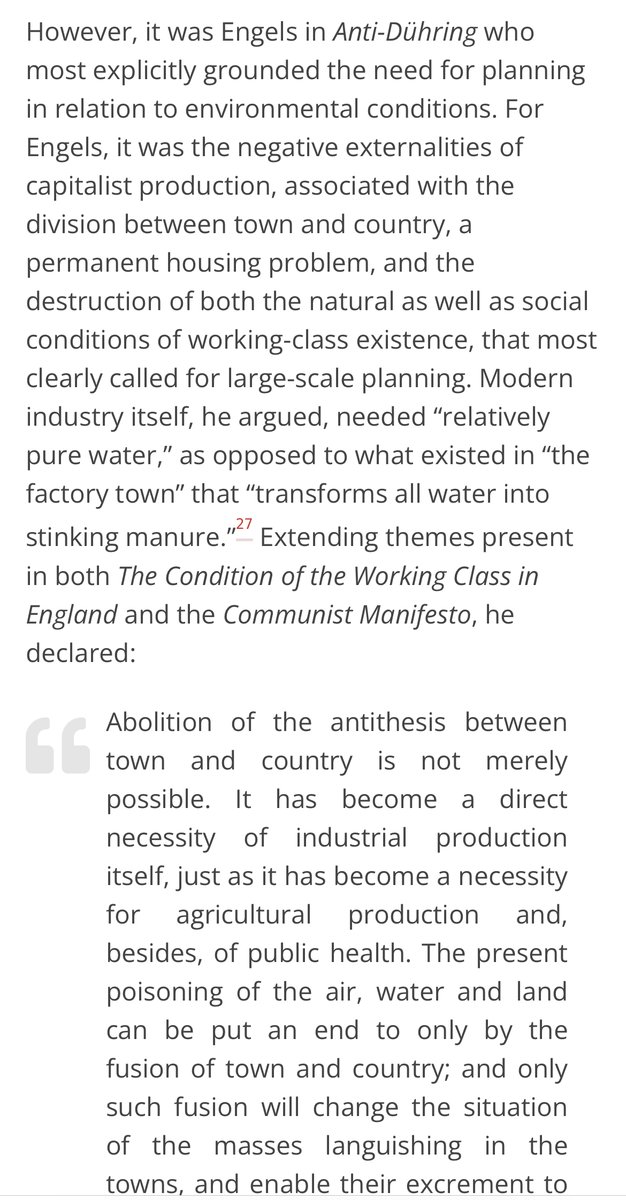
Bizarre for JBF to blame growth or 'nonstop capital accumulation' as the cause of eco-crisis, when he himself argues the last several decades have been defined not by growth but by 'stagnation' (see this excellent article by @JackCopley6 on this): 19/x https://t.co/tj3k6S1lwtjournals.sagepub.com/doi/full/10.11…




If capitalism needs nonstop 'growth' it's been particularly bad at producing it. 20/x https://t.co/mEXqH6NG24worldbank.org/en/research/pu…

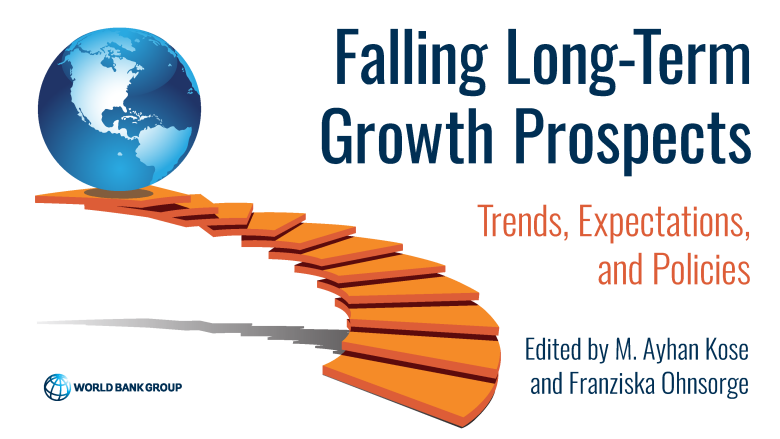
"Substitute labor for fossil fuel"? It's become quite the bugbear of mine, but I'm consistently amazed when ecological thinkers propose their vision of ecosocialism involves *more* labor-intensive forms of production. 21x 

One of the best things about the 'fossil fuel' energy regime is that it *liberated* much production from a reliance upon muscle power (this chart is from Smil 'Energy & World History', also see my chapter in this collection) 22/x https://t.co/Y1aZBaTJSFmcmprime.com/files/Material…


Finally, last paragraph. I like Baran's formulation of 'planned economic surplus'. Socialism will require a surplus: the Q is what we do with it. Planning the 'surplus' w/ ecological goals in mind is something capitalism is uniquely bad at. Socialism could do better. FIN 

• • •
Missing some Tweet in this thread? You can try to
force a refresh


